Hieu Dao
LLMs Are Biased Towards Output Formats! Systematically Evaluating and Mitigating Output Format Bias of LLMs
Aug 16, 2024Abstract:We present the first systematic evaluation examining format bias in performance of large language models (LLMs). Our approach distinguishes between two categories of an evaluation metric under format constraints to reliably and accurately assess performance: one measures performance when format constraints are adhered to, while the other evaluates performance regardless of constraint adherence. We then define a metric for measuring the format bias of LLMs and establish effective strategies to reduce it. Subsequently, we present our empirical format bias evaluation spanning four commonly used categories -- multiple-choice question-answer, wrapping, list, and mapping -- covering 15 widely-used formats. Our evaluation on eight generation tasks uncovers significant format bias across state-of-the-art LLMs. We further discover that improving the format-instruction following capabilities of LLMs across formats potentially reduces format bias. Based on our evaluation findings, we study prompting and fine-tuning with synthesized format data techniques to mitigate format bias. Our methods successfully reduce the variance in ChatGPT's performance among wrapping formats from 235.33 to 0.71 (%$^2$).
Waterfall: Framework for Robust and Scalable Text Watermarking
Jul 05, 2024Abstract:Protecting intellectual property (IP) of text such as articles and code is increasingly important, especially as sophisticated attacks become possible, such as paraphrasing by large language models (LLMs) or even unauthorized training of LLMs on copyrighted text to infringe such IP. However, existing text watermarking methods are not robust enough against such attacks nor scalable to millions of users for practical implementation. In this paper, we propose Waterfall, the first training-free framework for robust and scalable text watermarking applicable across multiple text types (e.g., articles, code) and languages supportable by LLMs, for general text and LLM data provenance. Waterfall comprises several key innovations, such as being the first to use LLM as paraphrasers for watermarking along with a novel combination of techniques that are surprisingly effective in achieving robust verifiability and scalability. We empirically demonstrate that Waterfall achieves significantly better scalability, robust verifiability, and computational efficiency compared to SOTA article-text watermarking methods, and also showed how it could be directly applied to the watermarking of code.
Data-Centric AI in the Age of Large Language Models
Jun 20, 2024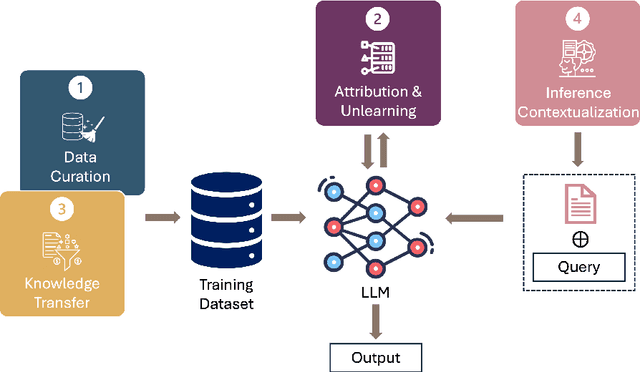
Abstract:This position paper proposes a data-centric viewpoint of AI research, focusing on large language models (LLMs). We start by making the key observation that data is instrumental in the developmental (e.g., pretraining and fine-tuning) and inferential stages (e.g., in-context learning) of LLMs, and yet it receives disproportionally low attention from the research community. We identify four specific scenarios centered around data, covering data-centric benchmarks and data curation, data attribution, knowledge transfer, and inference contextualization. In each scenario, we underscore the importance of data, highlight promising research directions, and articulate the potential impacts on the research community and, where applicable, the society as a whole. For instance, we advocate for a suite of data-centric benchmarks tailored to the scale and complexity of data for LLMs. These benchmarks can be used to develop new data curation methods and document research efforts and results, which can help promote openness and transparency in AI and LLM research.
Recognizing Families through Images with Pretrained Encoder
May 24, 2020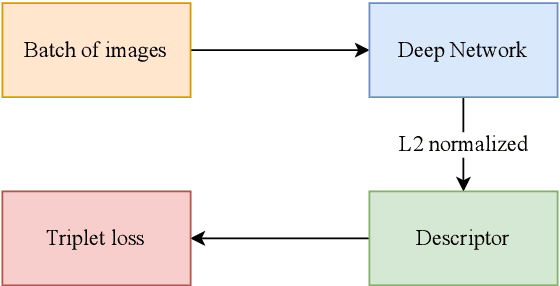
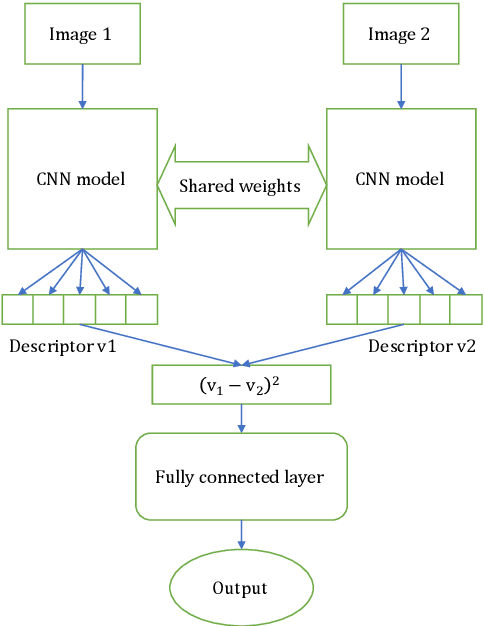
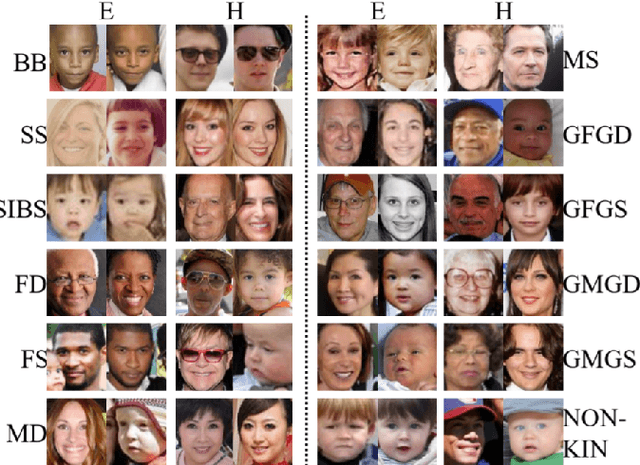
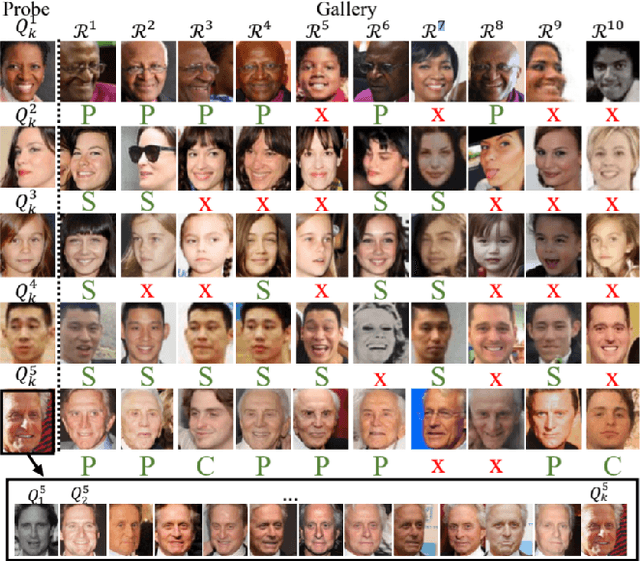
Abstract:Kinship verification and kinship retrieval are emerging tasks in computer vision. Kinship verification aims at determining whether two facial images are from related people or not, while kinship retrieval is the task of retrieving possible related facial images to a person from a gallery of images. They introduce unique challenges because of the hidden relations and features that carry inherent characteristics between the facial images. We employ 3 methods, FaceNet, Siamese VGG-Face, and a combination of FaceNet and VGG-Face models as feature extractors, to achieve the 9th standing for kinship verification and the 5th standing for kinship retrieval in the Recognizing Family in The Wild 2020 competition. We then further experimented using StyleGAN2 as another encoder, with no improvement in the result.
 Add to Chrome
Add to Chrome Add to Firefox
Add to Firefox Add to Edge
Add to Edge